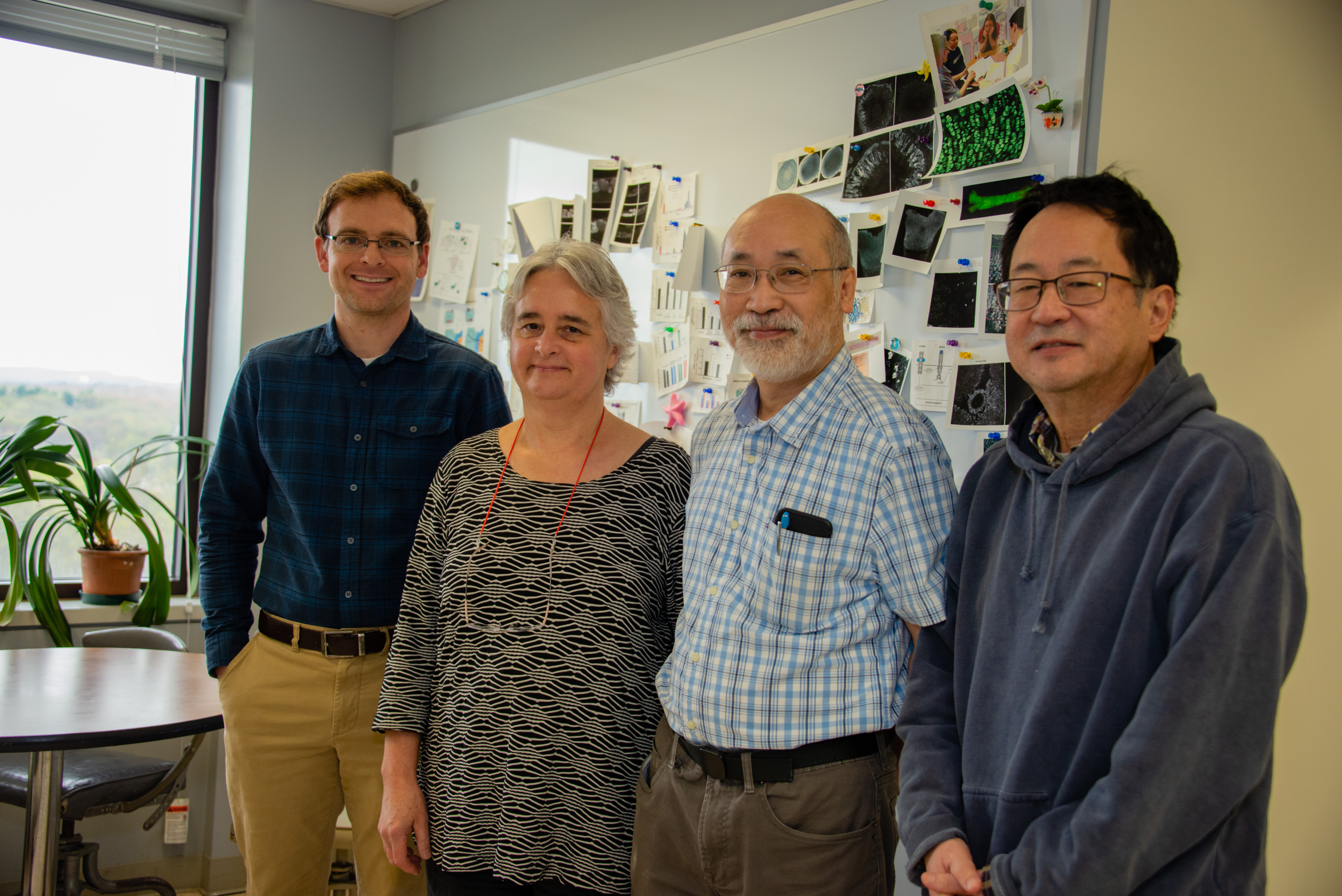We all come from eggs, eggs that developed in our mothers’ ovaries and were eventually fertilized. But there is a lot we don’t know about this process.
Through a $2.5 million grant from the National Institutes of Health, Laurinda Jaffe, a professor and chair of UConn Health’s Department of Cell Biology, will investigate how eggs are activated to begin developing. Mark Terasaki, Siu-Pok Yee, and Jeremy Egbert, also in the Department of Cell Biology, are co-investigators.
MERIT awards provide long-term grant support to investigators whose research competence and productivity are distinctly superior and who are highly likely to continue to perform in an outstanding manner. They are given to research programs that have been continuously NIH supported for at least three funding cycles and that received top scores for two concurrent competitive renewals. Roughly 5% of NIH-funded investigators ever receive a MERIT award over the course of their careers.
“My colleagues and I are grateful to the Eunice Kennedy Shriver National Institute of Child Health and Human Development for their continuous support of this project for 39 years, and in particular for their recognition of our accomplishments with this MERIT Award,” says Jaffe.
Jaffe’s team will look at how luteinizing hormone acts on the ovary to cause oocytes – cells that must undergo division before they become eggs – to progress to the stage at which they can be fertilized.
Oocytes are stored in the ovaries for decades, arrested in the first stage of cell division. Studies in mice have shown that this pause in the process of cellular division known as meiosis is maintained by a molecule called cyclic GMP (cGMP). Luteinizing hormone signaling lowers the level of cGMP in oocytes. With lowered levels of cGMP, meiosis can resume, and the oocytes become fertilizable eggs.
Even though researchers have a basic grasp of this cascade reaction, there are many questions about the process that remain unanswered.
Jaffe’s project will try to answer questions about how luteinizing hormones act, through their G-protein-coupled receptor, to reduce synthesizing enzyme activity in the cells that surround the oocyte.
The UConn team will study how this process is linked to luteinizing hormone’s stimulation of oocyte development. The conclusions reached from this study will help advance the understanding of the regulation of meiosis in women and the biochemistry and cell biology underlying reproductive medicine.
Laurinda Jaffe received her Ph.D. in biology from the University of California, Los Angeles. She completed postdoctoral training in cell biology at the Woods Hole Marine Biological Laboratory and the University of California, San Diego. Her lab’s research focuses on the physiological mechanisms that regulate the oocyte cell cycle, fertilization, and early development.
NIH Grant Number: 5R01HD014939-35



